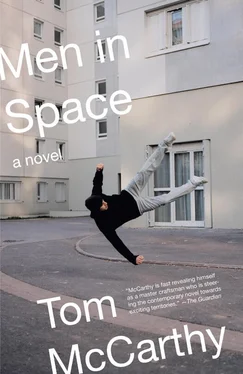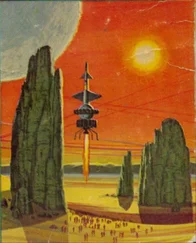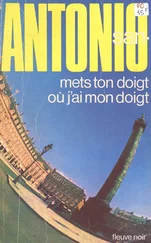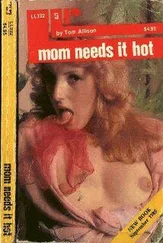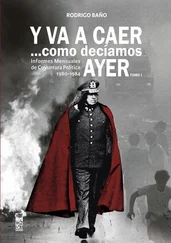“He can’t … he was standing in his doorway … I drove off and he was … I don’t …” This isn’t working: he should get his breath back first, and learn again to organize the words and images in sequences. Ilievski told him to go straight back to Korunní, saying he’d meet him there just before midnight, then called to say he couldn’t come till noon the next day … The dark-haired man’s eyes have narrowed down to slits: is he … is he laughing at him?
“You were the last to … seen entering his building just before … photos of this too … easily stick to you … No jury would take long …”
The words and images still won’t make sense. Anton sees a jury traipsing back into a courtroom, sliding into those benches he pictured being dusted earlier, the clerk there with her pre-flexed fingers tapping on her brutally indifferent typewriter, transcribing the foreman’s verdict, Guilty , then the judge sentencing him to life: that’s what you get, you get life, only cells and corridors, layer upon layer, like this building but multiplied ten times, multiplied to infinity as far as he’s concerned, he’ll never be outside it again … This picture won’t move aside for any others; it’s become anchored, intractable. And Anton’s there inside it, feels himself there literally: the courtroom is a box around this room’s box and the prison is a bigger box around that, boxes over boxes, each one slightly larger than the last, the gaps between the sides of each and those of the next forming corridors that lead nowhere, only back round to themselves; and at the centre of the smallest box is him. Coherence starts returning to him now, with his breath. The chaos of words and body has been replaced by sense and order — but both these stem from the inescapable truth of this boxed structure in which he now finds himself. All thoughts that follow move along its corridors, become themselves more cells and corridors, more layers.
With his slit eyes still locked on Anton, the thin, dark-haired man takes a sip of coffee, the first he’s had since walking in here. Then he pulls the cup away and places his finger on his chin:
“There’s still some coffee on your face.”
Anton, mirroring him, dabs at his chin. He can understand things now: they’re very simple. There’s coffee on his face, he’ll dab it off.
“No, other side.”
Anton dabs at the other side and feels the towel blot.
“Oh!” He’s all good-humoured now. “Before I forget: do you know someone called František?”
“František? He might be somewhere else. I haven’t heard of him before.”
“He’s not in your part of the picture, is that it?” Yes, that’s exactly what he meant: that František, whoever he is, must be slinking down some corridor located several layers away, or in some cell just off it. This man understands him perfectly. Engage. Proceed . The terms make sense now. Anton feels strongly attached to the man and is moved to tell him:
“I’m sorry.”
“About František? It’s not your fault. Don’t worry. If you don’t know him you don’t know him. It’s not something you need to deal with. Your role’s easy from now on. You just stay here, in this building, while we go and prepare your arraignment. Your arraignments, plural. Interpol will get a report from I.F.A.R. in a day or so from now, and when they do we’ll proceed with all the charges relating to the painting. The murder charge will take a few days more to formalize. They’re still gathering evidence at the scene …” He pauses and looks at Anton sympathetically. “I’m sorry too. Not about František. About you. That it’s you who’s here with all this centred around you.”
He gestures outwards from the room, beyond the walls. That’s what it is: centred around him, all this. Anton waits while the dark-haired man takes another sip of coffee, wanting him to carry on. The dark-haired man sets the cup down, wipes his hand across his lips, then says:
“And for what it’s worth — although we both know, you and I, that this fact has no bearing on the situation — I don’t think you killed Ivan Maňásek.”
The statement rouses Anton. “Maybe you could …” Could what? The whole procedure that’s been landed on him is so big, its layers so infinite — what could this man do to alter it? As though thinking aloud with him, the dark-haired man says:
“Could what, Anton? I don’t make the rules. I’m just caught up in the process, same as you. You have a role, I have a role. You’re the one in the picture, for the painting and for Ivan Maňásek. I help arraign you. The system does the rest.”
He gathers his papers together, lifts them up and lets them slide between his hands a few times so their bottom edges tap against the table, straightening.
“Once the process gets going, tomorrow, once it’s launched, it’s going to run right through. I won’t be able to stop it once it’s started.” He taps the papers on the table one more time, as though straightening a pack of cards, lays them down neatly, then looks up at Anton. His eyebrows shoot up suddenly — a look that heralds something new — and Anton’s shoulder blades rise with them, as if linked to them by invisible nerve-strings. The thin, dark-haired man holds him like that, half-suspended in the space above the table top, before resuming: “There is one thing I could do.”
Anton stays suspended, waiting for him to continue. The man seems to be thinking, running his mind over the structure’s layers and corridors. After a few seconds he seems to find what he was looking for, and says:
“What I could do — what we could do, if you work with me — is to prevent it starting.”
There’s a pause, then Anton says: “I don’t understand. How could we prevent …” The painting was found in his flat, he’s been arrested: hasn’t it already started? …
“Anton,” he’s smiling now, “of course it’s going to start, and right now you’re the one it centres around. What I mean is that we can get you out of here before it starts. Swap you.” He makes a criss-cross switching movement with his hands, as though he were showing off a trick, then leans forwards and says slowly, softly: “It’s not you they want.”
He pauses and lets this sink in. It’s not him they want. The dark-haired man’s still leaning forwards, looking straight into his eyes. After several seconds he repeats the words even more slowly, almost in a whisper:
“ It’s … not you … they want .”
And he sits back now: right back, slumped into his chair. Anton waits, hypnotized. The dark-haired man pulls himself up straight:
“They’ll take you,” he says, back at normal speed now, the tone higher, “they’ll take you if they can’t get anything better. That really depends on you. Whether you want to work with me or not. Whether or not you want to get out, and I mean right out — possession, forgery, murder, everything — before the process starts.”
“And how …” But he’s already sensing where this thing is going, sensing that he’s moving with it, moving through the corridors, being shown doors he didn’t know about before, doors leading outwards, away from the central cell. The pattern has a certain regularity to it, and that in turn makes each new layer he’s led through seem familiar; he can even anticipate the next one’s rhythm of door opening, corridor being crossed, new door opening … The dark-haired man’s smiling again, his eyes slitted once more.
“You know who they want, don’t you, Anton?”
“I …”
The dark-haired man’s right hand is beckoning him, a traffic cop’s hand, summoning him forwards. Now the left one comes out too, and both hands wait, wide open; they become parent’s hands, and Anton the baby taking his first steps towards them.
Читать дальше
